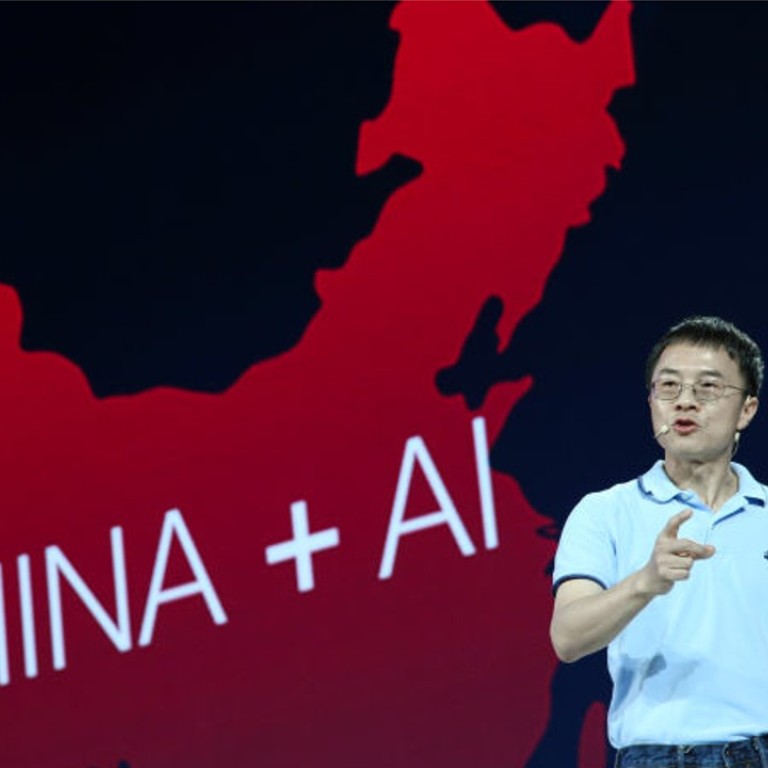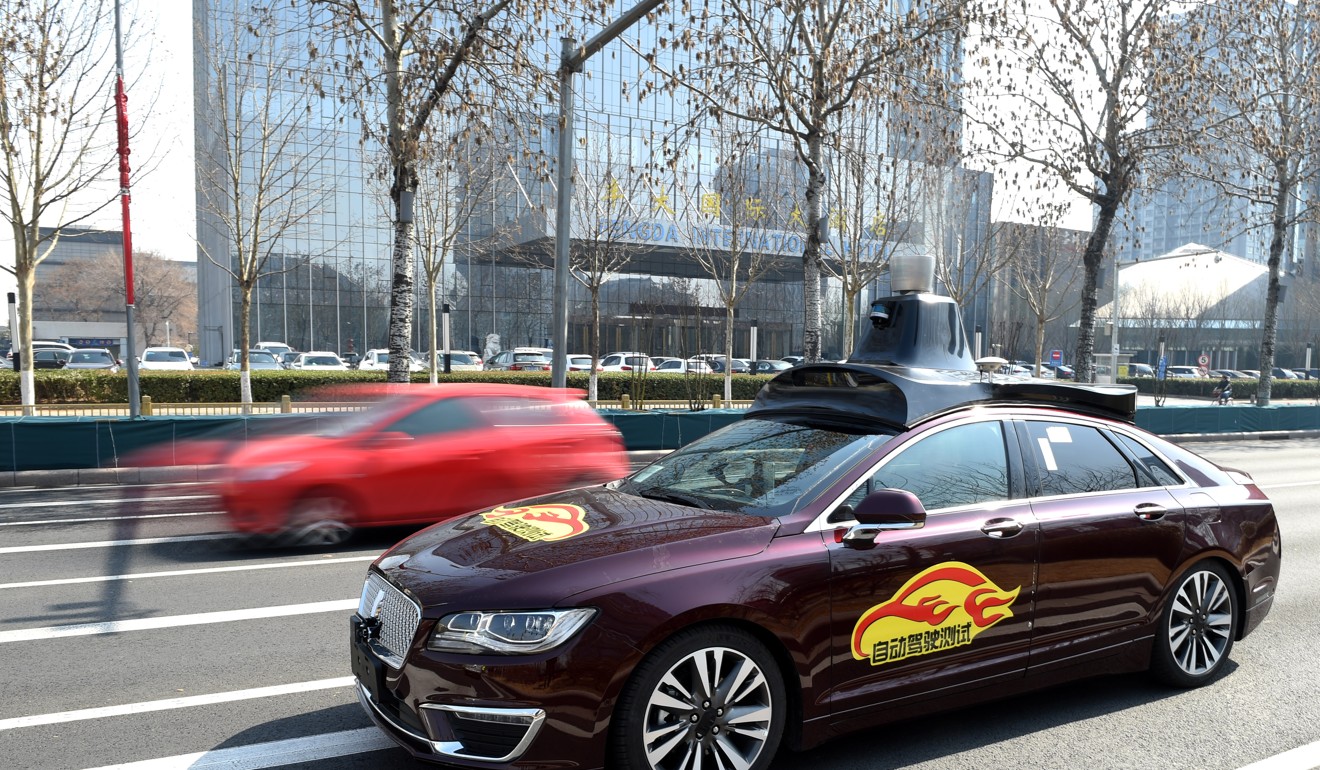
Baidu chief reiterates commitment to AI strategy after abrupt exit of chief operating officer
Baidu founder Robin Li Yanhong tells staff that company’s AI ambitions remain unchanged with impending departure of chief operating officer Lu Qi
Baidu’s billionaire founder Robin Li Yanhong held a town hall in Beijing on Monday in which he told those present that he remained confident in the company’s prospects and that the strategy to transform itself into an artificial intelligence (AI) company remains unchanged with the impending departure of chief operating officer Lu Qi, according to people with knowledge of the meeting.
Lu was present at the meeting and said he is leaving the company for personal and family reasons, said the people, who asked not to be identified discussing the company’s internal matters. Baidu declined to verify what was said at the meeting.
Li, chairman and chief executive of China’s dominant search engine operator, sought to address concerns after news on Friday that Lu would be stepping down, in another high-profile departure for Baidu, which is seeking to transform itself into a leader in AI.
On Friday, the Nasdaq-listed company shocked China’s tech universe by announcing the departure of Lu, a former Microsoft executive who was hired about 18 months ago to steer the company’s transformation into an AI-driven powerhouse. Baidu said Lu’s departure was due to “personal and family reasons” and that he would remain as vice chairman at the firm.
Lu’s family is understood to have remained in the US throughout his tenure, and never relocated to China. Beijing’s notorious air pollution may even have contributed to Lu’s decision to leave, as the executive was seen wearing face masks to Baidu meetings whenever the reading for the most dangerous PM2.5 particulate climbed above 50. In the year 2017, only 66 days in Beijing that had PM 2.5 below 50.
At Monday’s meeting, Lu thanked colleagues for their support. Hugo Barra, Xiaomi’s former head of international business, left China for a position in Facebook in Silicon Valley in January 2017, because of “health reasons”.
Baidu has lost several executives since 2017, so Lu’s departure sparked speculation within the company that the move had to do with political infighting, according to interviews with current employees.
News of Lu’s exit saw Baidu’s shares plummet 9.5 per cent on Friday, the biggest fall in almost three years, amid uncertainties over Baidu’s ability to turn its expensive bet on AI into a real engine for future business growth. Lu joined Baidu in January 2017 just as it was beginning its re-focus on AI after suffering the backlash from a scandal in which a young man died after buying experimental cancer treatment advertised on Baidu.com.

During Lu’s time at the company, it sold cash-burning businesses, such as food-delivery business Baidu Waimai, and pushed aggressively into autonomous driving and conversational AI. The company was also appointed by the Chinese government as a national champion to spearhead the country’s development in autonomous driving.
Since news of Lu’s departure on Friday, Credit Suisse lowered its recommendation from ‘outperform’ to ‘neutral’ while Jefferies and Nomura maintained a ‘hold’ rating. “While we are encouraged by Baidu’s refocus on AI as a core business, the loss of its top AI executive may add higher uncertainty around AI monetisation visibility,” said Karen Chan, analyst with Jefferies, in a research note on Monday, adding Lu had been a pioneer of the firm’s open platform AI strategy.



